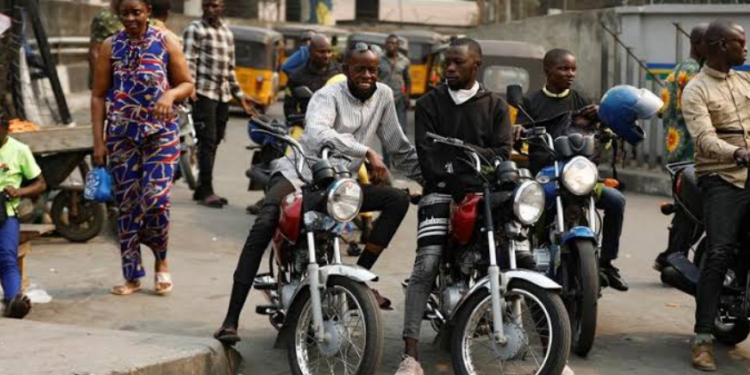The bustling streets of Nigeria’s major cities have long been synonymous with the energetic hum of motorcycles (also known as okada), a popular mode of transportation for many Nigerians.
However, this familiar sight is faced with a series of bans implemented by some state governments. The move, aimed at curbing accidents and ensuring public safety, is altering the transportation landscape and has sparked widespread debate.
This ban and the increase in petrol cost has made taking an okada expensive in a number of states.
Below are the most expensive states to take okada in Nigeria, according to the Transport Fare Watch for December 2023 by the National Bureau of Statistics (NBS):
News continues after this ad
More Insights
The Transport Fare Watch for December 2023 shows that the average transport fare paid on Okada transportation was N419.73 in December 2023 which declined by 11.29% when compared with the value recorded in November 2023 (N473.13). On a year-on-year basis, the fare declined by 9.04% when compared with December 2022 (N461.45).
The okada ban trend, gaining momentum over the past few years, has been most prominent in Nigeria’s urban centres. Lagos State, known for its dense population and traffic congestion, led the charge in February 2020, restricting okadas in significant city areas, including Ikeja, Surulere, Lagos Mainland, Lagos Island, Eti-Osa, and Apapa. The government cited safety concerns and the need to reduce crime as the main reasons behind the ban, adding that arrested okada riders and passengers are liable to three-year imprisonment. Therefore, it is not surprisingly that Lagos is top of the list.
Following Lagos’ footsteps, other states like Anambra, Kano, Kaduna, and Rivers have implemented similar restrictions. There is also a ban on okada in certain areas of Abuja. These bans have varied in scope and intensity, with some states outlawing okadas in significant city centres while others have placed partial limits.
Proponents of the ban argue that the move has resulted in a noticeable decrease in road accidents and crime rates. Okadas were often criticised for reckless driving and were linked to snatch-and-run crimes in crowded city areas.
The ramifications of these bans have been far-reaching. Commuters have struggled with limited transportation options, particularly in congested urban areas. The okada provided a quick and affordable means to navigate traffic, a void that has been challenging to fill.
The impact has been devastating for okada riders, many of whom relied on this as a primary source of income. Alternate employment opportunities are scarce, and the transition to other forms of transportation, such as Keke Napeps (tricycles), requires a capital investment that many riders need help to afford.
As the debate around the okada ban continues, state governments are exploring alternative transportation solutions. Lagos State, for instance, is investing in expanding its bus transit and railway system and improving waterway transportation.
Download Nairametrics App for breaking news and market intelligence.
Tags: okada


